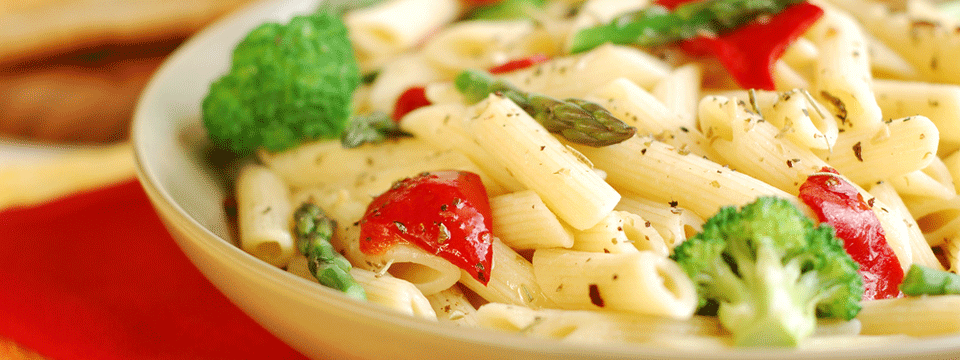
by Ashley Haupt | Aug 27, 2014
This is not a post about being a stay-at-home mom. Could anyone make these same changes in a different set of circumstances? Absolutely. Would I have done it? I think not.
When Tim and I married, I did not know how to cook. I knew how to bake desserts, and I did that so much that we both gained about 15 pounds each, then spent our first summer together at the local YMCA working it all off. My cooking skills were nonexistent; my shopping skills were worse, and it’s safe to say that we wasted a lot of money, food, and time back then. But we were DINKs (dual income, no kids) and we had time, money, and food to waste. Oh how the times have changed!
We had our fourth baby last November, and we moved shortly after she was born. I had just hit a groove in meal-planning and cooking for our family of five before Susanna arrived, and to say I lost my groove with her birth would be an understatement. She was highly intolerant to dairy in my diet, so I had to toss several of our favorite recipes and try to find new, dairy-free options. Then we moved, and our old budget for living on one income became obsolete as we adjusted to the new job, city, expenses. Our kids were growing and getting bigger (7,5,and 2) and meals that had fed us all before were starting to come up short.
I was so overwhelmed after the move by the challenges of feeding a family of six on our budget, dairy free, inexpensive and still healthy, that for months I just avoided the task. We just “got by” which is another way of saying we wasted money, ate out a lot (read “unhealthy”) and didn’t even really enjoy doing so because… well, eating out with four young children (no matter how well-behaved) is anything but relaxing.
It wasn’t until recently, when I weaned Susanna and the older two kids went back to school, that I had the emotional energy to tackle the monumental task of meal planning on a budget. Even then, one of my first trips to the grocery store, armed with a long list and grim determination to buy nothing off-course was extremely emotionally exhausting. Telling yourself “no” is wholesome, tiring work, whether you are trying to exercise, eat healthy, or stay on a budget. I had prayed for God to help me be a good steward of our money, but when I put feet to that prayer, I lost my breath pretty quickly. Good exercise takes energy, and this was a workout for my character and my spirit. It’s pretty easy and fun to walk around the store tossing all manner of processed goodies into your cart. It takes considerably more presence of mind to compile produce, grains, meats, and legumes to make up the components to 21 dairy-free meals on a tight budget.
But here’s the thing: “Necessity is the mother of invention.” Our struggle against our limitations creates friction and energy that can be funneled into creativity and innovation. Our frustrations fuel change. A tree in the desert gets little rain, but it grows a deep root system.
But this is key: you can’t determine that your limitations are a result of something wrong with you. We live on one income because I have chosen to be home with my kids. That choice is dear to me, as dear as another’s choice to work in a beloved career, or to support their family financially. Because I love my choice and the life it gives me, I will fight to align our finances accordingly. I don’t think I am less than others because we live on one income, even though the world values money as a status symbol. Is it hard to feed six people healthy food on a budget? Yes. But anything worth doing is hard, and this is my one brief, glorious life, and I want to do hard things for the glory of God.
Because of my limitations, I have been forced to grow out of my culinary comfort zones. I love processed food. I love easy, cheap, cardboard meals with long, indecipherable ingredient lists. If I were a single with no one else to feed but me, I’d probably live on Hot Pockets and Diet Coke. I can try to get whipped up about the fact that I don’t know what “carbomenthalate” is, but I’d probably just be pretending (and I made that word up). The world contains all kind of vocabulary I don’t know, and that’s just fine with me because I operate on a strict need-to-know basis. Not only that, but I don’t love cleaning or washing dishes. I used to call myself lazy, but now I think that those who enjoy cleaning are rarer than those of us who don’t, so I think I’m pretty normal. I’d rather pop a frozen lasagna in the oven and spend my time around the table with my family, talking, laughing and playing games than spending an hour in the kitchen before and after dinner in prep and cleanup.
But those tasty, easy, processed meals no longer work for our family because they aren’t big enough and we can’t afford to eat that way all the time.
Here are some things I’ve learned:
- Soda and desserts fill absolutely no nutritional needs and therefore got moved to the bottom of the priority list. Water is our default and we all drink more of it than before. Our kids expect to see water in their glasses for every meal, unless it’s almond milk. Almond milk is pricey and since they are getting plenty of calcium from other sources, too, they get one cup a day. On Fridays, we all get to have a “special drink” to mark the beginning of the weekend.
- Homemade salad dressings are so delicious, I am ruined on the bottled ones. Same for salsa.
- The lettuce you prepare yourself is so much fresher, tastier, and longer-lasting than the bagged salad mixes that I can keep it in my fridge for two weeks or more. I used to throw out a lot of salad mixes because they expired so quickly.
- Homemade croutons are awesome. We eat more salads, now. I toast, grill, and bake big batches of pecans, chicken, and bacon to have on hand to put in our salads for lunch, then mix up some homemade dressing to go on top, with fruit or veggies.
- Homemade soups. I have yet to find a restaurant that makes a better broccoli cheese soup than I do (may it rest in peace with all my other dairy-licious recipes).
- Homemade granola. I made some for a friend who has having a baby and she liked it so much that she asked if she could BUY some off of me the next time I made a big batch.
- I would rather eat my own homemade chicken pot pie, sweet and sour chicken, lettuce wraps, pasta primavera, and fried rice (with grilled chicken) than to eat it out anywhere else. I can control the salt, fat, and dairy content and it just tastes better.
- I’ve learned about the health benefits of coconut oil, brown rice, beans, milled flax seed, and kale. (I tried quinoa, but it didn’t float my boat. Sorry quinoa, maybe next time.)
- Our tastes have changed and we notice a difference in how we feel after a home-cooked meal versus a restaurant meal. The kids are starting to notice, too.
- We can have family conversations about healthy food without constantly feeling like hypocrites. Ie, you wouldn’t say: “No, hot dogs are very healthy, sweetie. Or fries, either. Now, let me get you some ketchup…”
- More time in the kitchen means I had to ask my husband to step it up with the dish-washing. He was already very helpful with this, but for me to put in more hours (literally) doing more cooking, I needed him to follow behind me with the dish-washing. It takes both of us staying on top of the dishes day and night to keep our sink under control.
Later, I began to see lots of buzz about “clean eating” and “real food” on social media. When I figured out what these phrases meant, I had to laugh. We had jumped on that bandwagon unwittingly. I feel certain I would never have made these changes if our budget and dairy limitations hadn’t forced my hand.
It comes down to this: God works all things for the good of those who love Him and are the called according to His purpose. Even our limitations can be the conduit of great blessings in His perfect providence. Often, as we plod through our lives, we are inwardly asking the question, “Do you see me, God?” “Do you really care about what is happening to me down here?”
He does care. He really, really does. No matter what limitations you are facing, God is ready and willing to help you funnel your frustration into innovation so you can run in such a way as to get the prize.
Let’s run the race, friends. And if you see me at the grocery store and I seem stressed out, it’s not you. I’m probably just doing battle with my desire for Oatmeal Cream Pies.
“I press on toward the goal for the prize of the upward call of God in Christ Jesus.” Philippians 3:14

by Ashley Haupt | Aug 13, 2014
Robin Williams was America’s favorite guy: funny, clever, honest, inspiring. We love his movies, we admire his art, and he makes us laugh—a winning combination. Yet, the early reports of his death report possible suicide by asphyxiation. I hope that further investigations prove otherwise, but it looks as though one of the most loveable, successful, and influential men in America took his own life.
How can that be?
His death highlights some of the most tragic truths:
- It’s possible to be universally loved and hate yourself.
- It’s possible to possess limitless potential and talent but lose it all because of emotional pain.
- It’s possible to gain the whole world and lose your soul.
I don’t mean by that last statement that Robin Williams lost his soul to hell because of suicide. I don’t believe that suicide is an unforgiveable sin, I don’t believe that suicide sends people to hell, and I don’t venture to speak to the eternal location of his soul.
This is a man who had everything in the eyes of the world, yet was hurting so badly on the inside that he would desire to ultimately escape the pain. He had a soul in desperate need of tender care, and for reasons we do not know, he lost the war within himself. This is man who deserves our utmost empathy and grace, not because of his fame, not because of his talent, but because like all of us, he was a human with a hurting heart. God knows there are millions more out there hurting in similar fashion.
As I watch the media sing his praises, I can’t help but wonder: what if we had done this while he was still living? Would it have made a difference? Why do we wait until someone’s death to document his or her influence? Can we not celebrate the living while they are still with us?
In John 9, Jesus said, “As long as it is day, we must do the works of him who sent me. Night is coming, when no one can work.” Death always reminds us to let our momentary concerns shrink down to size and live while we still can. Today, as we remember him, may we embrace someone else, tell them we’re glad they are here, tell them how they have touched us by sharing their art and their heart. May we work to rescue people while we can, redeeming Robin’s death by realizing that it can, eventually, be too late.
Robin, we mourn your passing. You touched us with your comic art, your enormous talent, and your courageous humanity. We
grieve to know you were hurting and we hold onto hope for your eternal destiny.
*Photo Credit: Featureflash / Shutterstock.com

by Ashley Haupt | Jul 30, 2014
Eccl. 4:4-6
And I saw that all toil and all achievement spring from one person’s envy of another. This too is meaningless, a chasing after the wind.
5 Fools fold their hands
and ruin themselves.
6 Better one handful with tranquility
than two handfuls with toil
and chasing after the wind.
I’m in denial.
School is just around the corner, waiting, casting sly glances our way. We’ve done the quintessential summer activities: Sonic runs, slip ‘n slide, lazy pool days, ice cream, lemonade, bikes, books and bubbles. I know it’s time to transition to paper, pencils, and reading logs.
Also on the horizon: tighter bedtimes, busier mornings and the potential for more stress.
Our American culture values busyness. We applaud those who boast a long list of activities and accomplishments. Not to be outdone, we willingly sign up for all the opportunities that come our way without question, crowding every calendar space with places to go, people to see, things to do.
No wonder we can’t make it to church on Sunday morning. We’re exhausted.
Occasionally, we should question our culture. We have much to be proud of in America, and I am thrilled to call this country home. I love the United States of America, and I get a little sentimental with everyone else on the 4th of July. But when I walk into a buffet restaurant, I tend to think, “This is everything that’s wrong with America.” Obesity, excess, extravagant waste. Buffet restaurants thrive on two ideas: More is better. Quantity over quality. These places offer a multitude of choices, and people line up to pile their plates to overflowing. Back at the table, eating becomes more of a challenge to conquer than an experience to savor.
This mindset carries over to our schedules, too. More is better, quantity of life events over quality of life enjoyment.
We need some ancient wisdom to bring us back to a place of balance. In Eccl. 4:6, Solomon says “that toil and achievement come from one person’s envy of another.” Indeed, nothing is new under the sun. Keeping up with the Joneses has us running on the hamster wheel.
We do more, more, more to keep up with others, to keep up a certain reputation, or to keep others happy with us.
And you know what? We’re chasing the wind. We will never catch it, it will never be enough, and we will be left breathless and exhausted.
What if we could be left breathless instead by the beauty of the moment? What if we chose quality over quantity?
Solomon acknowledges the balancing act: it’s not wise to do nothing either. Fools fold their hands in their laps and ruin themselves. I’m not suggesting we stay home and watch TV, or sit and stare at each other all day.
So what is the answer?
One handful.
One handful is the answer.
Better to have one handful with peace and tranquility than two handfuls of life with striving, toil, and stress.
None of us can do it all. And we shouldn’t try, because we are all gifted and called to do our own unique interests. Each of us needs to find our one handful of life that represents the things closest to our hearts. These are the good works God has prepared for us (See Eph. 2:10). Certain things we do in our lives fill us with a very purposeful, very satisfying kind of joy, so that we think, “This is what I was made to do.” God created us with specific callings, and He doesn’t ask us to do life “buffet style.”
What will be your “one handful” this school year? What matters most to you? What makes you feel content and satisfied, as you do after eating a delicious meal?
Is it family dinners around the table? Book reading time? Time for a walk in the twilight hours? What do you need to clear off your plate in order to refresh yourself in this way?
What are the activities that you truly enjoy spending your energy on and how can you clear out excess obligations in order to better spend your energy in those areas?
Buffet eating and buffet schedules tend to make us feel stuffed, tired, bloated. Quality food deliciously prepared and slowly savored makes us feel nourished and satisfied.
As the school year begins and the scheduling opportunities abound, consider making the counter-cultural decision as a family to have one (delicious) handful with tranquility.
One handful is very good indeed.

by Ashley Haupt | Jul 22, 2014
1. Bad days. We all have bad days. Yet somehow, in the ministry, you feel as though you aren’t allowed to have a bad day, as though it is a lack of faith to not be particularly joyful or happy all the time. If you happen to run into your pastor or his wife and he or she seems off, don’t assume it’s you. Most likely, it’s a bad day. The pastor and his wife experience all the emotions, even the ones you can’t imagine. Let them have bad days without taking it personally. Maybe consider it as a good reminder to offer some encouragement.
2. Humanity. We’re going to disappoint you, I promise. And it’s not because we aren’t good Christians; it’s because we’re human and we can’t please everyone. Even the Son of God walked most places on foot, slow step-by-step progress wherever He went. He disappointed people, too. He saw the tears of Martha because He was too late to save Lazarus. He wept over the piercing pain of disappointment and grief to see her sadness and His friend’s corpse. Jesus couldn’t be everywhere at once, and He knew God wasn’t calling Him to be. We know this, too. Please understand that we can’t always be where you want us to be either. But we do promise to try our best to be fully present, wherever we are, doing our best to minister for the glory of Christ.
And a special note for pastor’s wives. Please, please give your pastor’s wife oceans of grace. I have been extremely blessed and fortunate in our churches, but I know of pastor’s wives who have been very wounded. Sometimes churches will be more gracious to the man behind the pulpit than the woman sitting alone with her children in the front row. That woman needs more grace than you know. She, too, worries about what to wear on Sunday morning, but she’s in the spotlight more than other women. She, too, wrestles to get her children ready for church, sometimes fighting over clothes or hairstyles, but more people notice if she’s late. She, too, has private hurts and hardships, but she isn’t always free to share her pain. Know that she is flesh and blood and lavish grace on her abundantly.
3. Love and presence. Even though we can’t be everywhere, always, we do want to know about your significant life events. Tell us! Send us a message or a text letting us know when a family member is having surgery. We want to know, we care, and it makes us feel involved in your life. We know what to ask about when we see you next, and we love this. It means so much to us to be present during significant moments of your life. You are family.
4. Clear and Biblical teaching. When it comes to pastoring, it’s a tricky career to evaluate success or failure. How do you know if it’s a good sermon? The number of positive comments? The number of people who come to the altar? Both of these are erroneous ways to measure success and could lead you either to pride or discouragement. Once, when my husband felt down after a Sunday morning sermon (that I had thought was fantastic), I asked him how he measured success in preaching. His response was that he considered it successful if it was clear and Biblical. The message should be easy to follow, and the points should come directly from the text. This is how you should also evaluate your pastor’s preaching. Please don’t go to lunch afterwards and say that the message was boring because it didn’t apply to you. If your pastor is preaching the Word of God clearly and concisely, thank God, thank your pastor, and consider it a privilege to grow in your knowledge every Sunday.
5. To do our level best. When a church hires a pastor and pays him a salary, sometimes it feels like he suddenly has a multitude of bosses who all have opinions on how things should be done. No one pastor can please all his people. He will have strengths and weaknesses, blind spots and visions. But when you consider how your pastor is doing, ask yourself this, “Is he doing his best?” Most likely, he is working as hard as possible to do well at his job, even if he’s not doing exactly what you want when you want it. Be grateful, be appreciative, be understanding. Pray for him. Give him grace. It’s not an easy job, but the results echo into eternity. The more you support him, the more he will flourish.
My husband and I are approaching nine years in vocational ministry, exactly the amount of years we have been married. We are grateful for our calling and we give a special thank you to those people we love and serve in the body of Christ.

by Ashley Haupt | Jul 2, 2014
I’ve heard it all.
I’ve heard all the Christian messages on unforgiveness.
It’s a poison intended for our enemy that we actually drink ourselves; we should forgive seventy times seven times because of how Christ forgave us; it produces the bitter, ugly fruit of resentment in our hearts.
Been there, done that.
But nothing helped. I prayed and cried and begged to be free of my unforgiveness, yet freedom eluded me. I could not even envision the day I would be completely free of it. I had tried many times in private prayer before God to release it, but nothing worked. All the feelings came back, time and time again.
Finally, I began to meet with a Christian counselor. 2014 is for me a year of doing hard things for the glory of God and counseling was one thing on my list. It’s like having a personal trainer for your emotions; they push you farther than you’d take yourself alone, but you’re better for it in the end. While I was there, I wanted to deal with the unforgiveness in my heart.
Her solution surprised me. All this time I thought I felt too much, and she didn’t think I’d felt enough. She made me express the original anger and hurt that resulted in unforgiveness. I’d been so focused on the unpleasant feelings, my own failure to get past it, and my eagerness to move on, that I’d repressed the source emotions.
Remember Elsa, Let it Go, and the terrible advice to “conceal, don’t feel”?
Yeah, don’t do that. Feel to heal.
Feel the hurt, the anger, the sadness, the frustration. Feel it, write an angry letter, tell that person exactly what you think about them and what they did to hurt you. Take your time, get it all out of you, and pour out the last drop of anger until there is nothing left inside. Remember that the Bible tells us to, “Be angry, but do not sin.”
God gets angry, Jesus got hopping mad in the temple, and Paul was furious with Galatians. Anger is not a sin. We sin with our actions when we act in anger, but it is possible to just be angry and not sin. God’s not mad at us for our anger; He remembers that we are but dust.
I’m pretty dusty myself.
We need to express our anger somewhere. That doesn’t necessarily mean we express it to the person who hurt us, although there may be a time for that, too. But always, we bring it into the presence of God. He’s big enough to handle all our big emotions, whether it’s anger, grief, hurt, envy, loneliness, bitterness, resentment, or just sorrow.
Only after the anger is out, the hurt is released, the complaint before God is made, do we truly let it go. We burn the angry letter, we release the offender to God and His perfect ways, and we let the past be in the past.
I discovered that forgiveness looks and smells like the acrid scent of burning paper on my backyard grill where I light the flame that burns my written words into a gray flower of ash.
Now, we move on.
Lighter. Freer.
The space in our hearts that was cluttered with unforgiveness is now freed up to fill with joy and love. Who knows? Maybe love for the very person who hurt us in the first place will find its way into that space. Or at the very least, pity.
Originally, I didn’t think I would see the day when I could be free.
By the grace of God, I’ve seen that day, now.
And it is a beautiful thing.
“Be kind to one another, tenderhearted, forgiving one another, just as God in Christ forgave you…” Ephesians 4:32
For more information on unforgiveness, read this article from Desiring God.




